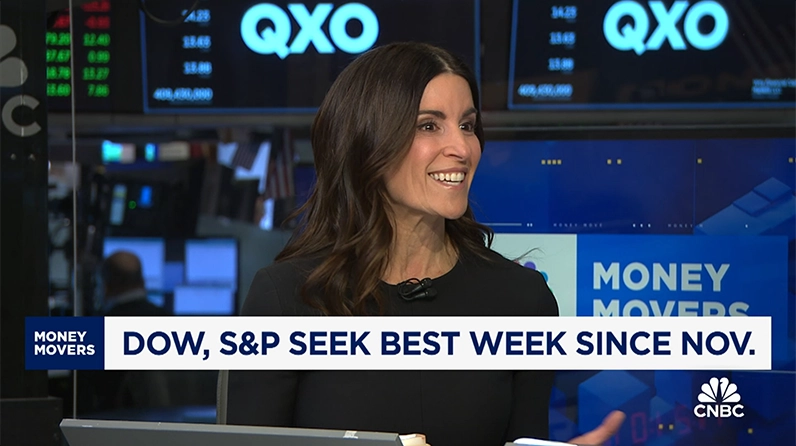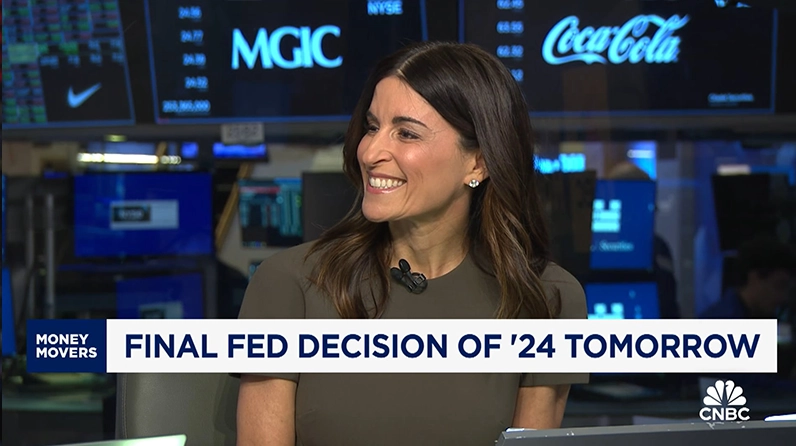

While the events of this weekend were shocking, there is a long way to go until ballots are cast and investors are grappling with a still incredibly dynamic economic and market environment
The contentious nature of U.S. politics was on solemn display on Saturday as former President and soon to be Republican presidential nominee Donald Trump was struck by a bullet in an assassination attempt at a rally in Butler, Pennsylvania. Former President Trump was rushed quickly to safety after shots were heard, and while he was treated for an injury to the upper part of his right ear and released, the shooter and a bystander at the rally were killed. Two other audience members were critically injured. President Joe Biden addressed the nation from the Oval Office on Sunday evening in response to the act, calling for Americans to “take a step back”, acknowledging that the “political climate in our country…has gotten very heated.” He urged Americans that “we must never descend into violence.” For his part, former President Donald Trump heaped praise on his Secret Service protectors and called on the public to “show our True Character as Americans.”
Politically, the violent act is likely to provide momentum to the Trump campaign, igniting further support for him from his base and perhaps even some undecided voters who still perceive him as an outsider to the Beltway. The incident comes on the heels of a challenging first debate for President Biden and a NATO address that, while more convincing of Biden’s fitness of office than the debate stage, was still not enough to assuage concerns from within the Democratic party that Biden may not be the best choice to beat Trump in November.
Market reaction has aligned with the above assessment that this weekend’s event puts Trump on stronger footing. Equity markets are trading higher based on expectations that a second Trump term will potentially bring a recommitment to the 2017 tax cuts as well as a modestly lower corporate tax rate, and a less restrictive regulatory environment, all of which have the potential to buoy equity prices. President Biden, conversely, is likely to propose a sharp increase in the corporate tax rate, an increase in taxes on the energy industry, and potentially higher tax rates on capital gains.
It bears mentioning that campaign promises are often broken and that similarities exist between the two candidates as well. Protectionism as executed via restrictive tariffs is back in vogue, which, unfortunately, in our view, is likely to be inflationary and not nearly as additive to domestic growth as either candidate will message. In addition, in aggregate, neither candidate appears to be overly focused on spending less in Washington, just spending differently. Immigration is also an area of increased coalescence, with both parties looking to better protect the Southern border despite evidence that the influx of immigrants over the last several years has helped to alleviate a massive supply-demand mismatch in the U.S. labor market.
In short, while the events of this weekend were shocking, there is a long way to go until ballots are cast, and investors are grappling with a still incredibly dynamic economic and market environment. Attention is likely to shift now to earnings season which kicked off last week with the financials and will reach a crescendo the week of July 22 as most of the largest global technology companies report. Focus will then pivot later this month to the Federal Reserve, which meets in late July and then mid-September and is likely at this point to vote for the first rate cut in this cycle well before we go to the polls in November.


INSIGHTS
CIO Notebook: Inflation Softer Following Strong Jobs Report

INSIGHTS
CIO Notebook: Firm Data Points Towards Fed Pause

MARKET COMMENTARY
New Year, New Winners?

INSIGHTS
CIO Notebook: Fed Cautious Ahead of Stronger Growth, Policy Changes

VIDEO
Holly Newman Kroft Discussed Year End on CNBC

MARKET COMMENTARY
Voters Unleash Animal Spirits

INSIGHTS
CIO Notebook: Inflation Higher in November as Fed Weighs December Cut
INSIGHTS
CIO Notebook: Fed Cut Likely as Unemployment Rate Rises
INSIGHTS
CIO Notebook: Inflation Comes in as No Surprise but Future Less Certain
VIDEO
Holly Newman Kroft Discussed Her Post Election Insights
MARKET COMMENTARY
Navigating the Uncertainty Before the Certainty
INSIGHTS
CIO Notebook: As a New Administration Waits in the Wings, the Fed Keeps Cuts Coming
INSIGHTS
CIO Notebook: Shock Infested Data Shows October Payrolls Slowing
IMPORTANT INFORMATION:
This material is provided for informational purposes only and nothing herein constitutes investment, legal, accounting or tax advice, or a recommendation to buy, sell or hold a security. This material is general in nature and is not directed to any category of investors and should not be regarded as individualized, a recommendation, investment advice or a suggestion to engage in or refrain from any investment-related course of action. Any views or opinions expressed may not reflect those of the firm as a whole. Neuberger Berman products and services may not be available in all jurisdictions or to all client types. Diversification does not guarantee profit or protect against loss in declining markets. Investing entails risks, including possible loss of principal. Investments in private equity are speculative and involve a higher degree of risk than more traditional investments. Investments in private equity are intended for sophisticated investors only. Unless otherwise indicated, returns shown reflect reinvestment of dividends and distributions. Indexes are unmanaged and are not available for direct investment. Investing entails risks, including possible loss of principal. Past performance is no guarantee of future results.
Portfolio positioning views expressed herein are those of Neuberger Berman’s Private Wealth Investment Group, which may include those of the Neuberger Berman’s Asset Allocation Committee. Asset allocation and positioning views are based on a hypothetical reference portfolio. The Private Wealth Investment Group analyzes market and economic indicators to develop asset allocation strategies. The Private Wealth Investment Group works in partnership with the Office of the CIO. The Private Wealth Investment Group also consults regularly with portfolio managers and investment officers across the firm. The Asset Allocation Committee is comprised of professionals across multiple disciplines, including equity and fixed income strategists and portfolio managers. The Asset Allocation Committee reviews and sets long-term asset allocation models, establishes preferred near-term tactical asset class allocations and, upon request, reviews asset allocations for large diversified mandates. Asset Allocation Committee members are polled on asset classes and the positional views are representative of an Asset Allocation Committee consensus. The views of the Asset Allocation Committee and the Private Wealth Investment Group may not reflect the views of the firm as a whole and Neuberger Berman advisers and portfolio managers may take contrary positions to the views of the Asset Allocation Committee or the Private Wealth Investment Group. The Asset Allocation Committee and the Private Wealth Investment Group views do not constitute a prediction or projection of future events or future market behavior. Defensive positioning generally means an underweight bias on allocations to risk assets such as equities and alternatives. Positioning views may change over time without notice and actual client positioning may vary significantly. Discussion of yield characteristics or total returns of different asset classes are for illustrative purposes only. Such asset classes, such as equities and fixed income, may have significantly different overall risk-return characteristics which should be consider before investing.
The information in this material may contain projections, market outlooks or other forward-looking statements regarding future events, including economic, asset class and market outlooks or expectations, and is only current as of the date indicated. There is no assurance that such events, outlook and expectations will be achieved, and actual results may be significantly different than that shown here. The duration and characteristics of past market/economic cycles and market behavior, including any bull/bear markets, is no indication of the duration and characteristics of any current or future be market/economic cycles or behavior. Information on historical observations about asset or sub-asset classes is not intended to represent or predict future events. Historical trends do not imply, forecast or guarantee future results. Information is based on current views and market conditions, which will fluctuate and may be superseded by subsequent market events or for other reasons.
Discussions of any specific sectors and companies are for informational purposes only. This material is not intended as a formal research report and should not be relied upon as a basis for making an investment decision. The firm, its employees and advisory accounts may hold positions of any companies discussed. Nothing herein constitutes a recommendation to buy, sell or hold a security. It should not be assumed that any investments in securities, companies, sectors or markets identified and described were or will be profitable. Investment decisions and the appropriateness of this content should be made based on an investor's individual objectives and circumstances and in consultation with his or her advisors.
Neuberger Berman Investment Advisers LLC is a registered investment adviser.
The “Neuberger Berman” name and logo are registered service marks of Neuberger Berman Group LLC
© 2024 Neuberger Berman Group LLC. All rights reserved.